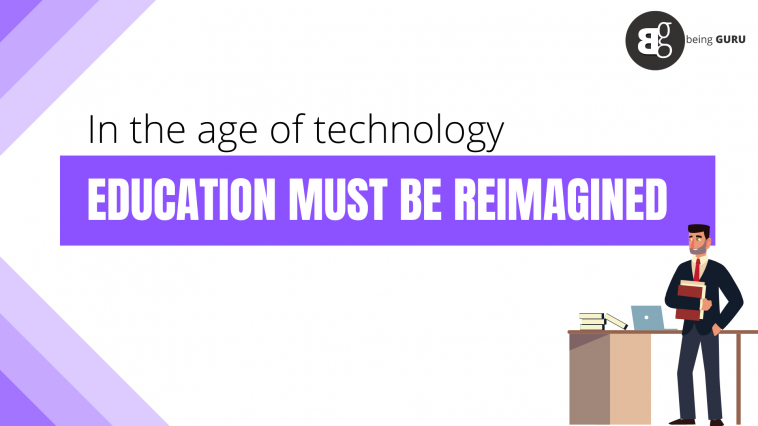There is no denying that the technological era has changed many facets of life, but education has been particularly affected. We must now reconsider our long-held beliefs about education and start to rethink it in the context of technological breakthroughs.
Education has historically been a one-size-fits-all endeavor in the traditional classroom. The pace of instruction is frequently determined by the average student’s aptitude when there is only one teacher instructing a large classroom of pupils. This method offers little possibility for individualized instruction, which may make students feel underserved at both ends of the spectrum – the struggling and the gifted.
Technology’s benefits for education:
However, the development of technology creates a vast array of opportunities for personalized, adaptable learning. Artificial intelligence (AI) is currently being used by educational platforms to build learning environments that adjust to the demands of each learner. To accommodate various learning styles, lessons can be delivered in a variety of formats, from text and images to videos and interactive simulations. These platforms may adapt the level of difficulty, the pace of the courses, and the kinds of exercises to meet each student’s particular learning curve thanks to real-time feedback. By addressing the problems with the conventional classroom, this individualized method might provide a more effective and inclusive education.
Additionally, the interconnectedness provided by the internet has increased access to knowledge. Connecting to people is just as important as connecting to a wealth of knowledge. With the help of websites like Coursera and edX, anyone with access to the internet may now take courses from renowned colleges all around the world. Learning has evolved into a collaborative, interactive experience that is not limited by geographic borders thanks to online communities and discussion boards.
However, it’s equally crucial to remain conscious of the difficulties that lie ahead as we embrace the advantages of technology in education.
Challenges to come
The issue of the digital divide comes first. Not all students have access to the technology needed for online education. Even if the devices are available, it may still be difficult to find dependable internet connections, especially in rural and low-income areas. We must address this inequality and make sure that everyone benefits equally from technology-assisted schooling.
Second, even if technology allows for personalized learning, there is a chance that it will isolate kids. Social connection and teamwork, which are essential for the real world, are fostered in conventional classrooms. Therefore, it is crucial that features that encourage collaboration and interaction be incorporated into the design of digital learning environments.
Third, there is a big concern about the security and privacy of student data. As more of our kids’ education is done online, it is crucial that platforms follow stringent data privacy guidelines to safeguard students’ private data.
The readiness of our instructors is another issue that has to be addressed. In order to effectively employ these technologies, teachers must be well-versed in them. They must change from being information distributors to learning facilitators, which calls for extensive training and assistance.
What to keep in mind going forward
There is no doubting that technology has the enormous potential to completely transform education. It promises individualized, open, and collaborative learning that could fix many of the problems with the way things are now. But it’s crucial that we do so carefully as we set the course for this new era of education.
No of their socioeconomic situation, we must make sure that every student receives the advantages of technology in education. To prepare students for the real world, social connections, and teamwork must be incorporated into the digital learning environment. Data privacy and security for students must be given top priority. Most importantly, we need to give our teachers the tools and resources they need to successfully navigate this new environment.
The process of reimagining education in the technological age is difficult and complex. However, if we approach it wisely and broadly, we have the chance to develop a system of education that genuinely meets the individual requirements of every student and equips them for the future. We have the chance to democratize knowledge so that everyone has access to it and learning ceases to be a privilege for a select few.
Additionally, a good tech-education combination has broader societal repercussions. It might encourage a culture of ongoing skill improvement so that people can stay current in today’s fast-paced society. Such a culture is not only desirable but essential in a future where AI and automation are expected to disrupt the labor market.
A better-educated population could also spur innovation, economic expansion, and social advancement. If more people had access to high-quality education and the means to put that knowledge to use, just think of the solutions we could come up with. If critical thinking and problem-solving were embedded in our educational system, consider the societal issues we could resolve.
So let’s face the difficulties of incorporating technology into education head-on. Let’s look at them as chances to hone and enhance the system. Let’s take note of the triumphs and missteps of early adopters and work to develop a welcoming, interesting, safe, and efficient digital learning environment.
At the end of the day, education is about more than just spreading knowledge; it’s also about giving people power. It aims to promote empathy, creativity, and curiosity. Giving our children the knowledge and outlook they need to navigate the future is the goal. Technology can help in this effort, but only if we employ it in a considerate, responsible, and inclusive manner.
Let’s not just digitize education in this technological age. Rethink it, then. Because the potential benefits—a more knowledgeable, creative, and inclusive society—are more than worth the effort.




